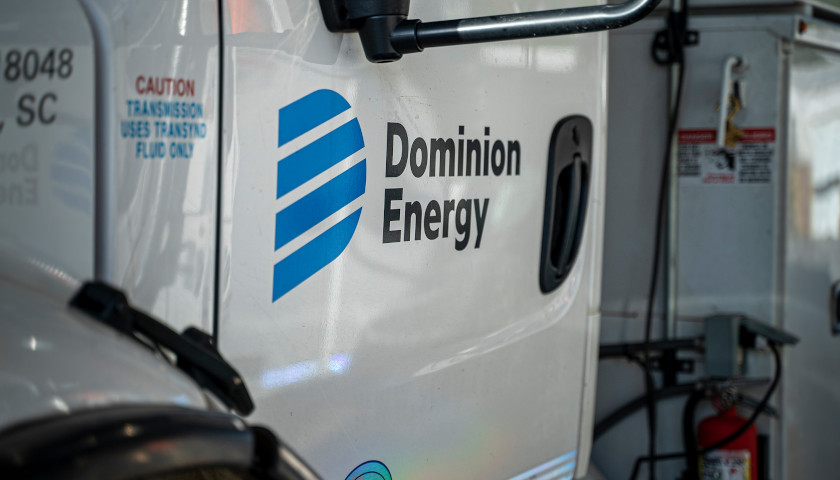Dominion Energy earned $502.7 million in revenues above authorized profit from 2017-2019, and customers’ residential energy bills have increased by 28.81 percent since 2007, the State Corporation Commission (SCC) said.
The Virginia State Corporation Commission released its annual status report on the implementation of the Virginia Electric Utility Regulation Act, highlighting detailed business figures of Dominion Energy and other electric companies operating in Virginia.
From the calendar years 2017 to 2019, Dominion earned a return on equity (ROE) of 11.79 percent, above the commission approved ROE of 9.20 percent, according to the SCC.
The report also breaks down the ROE and excess revenues by year. In 2017, Dominion had an ROE of 13.84 percent representing $300.8 million in revenue, while in 2018 ROE was 13.47 percent with $277.3 million in revenue, according to the SCC.
2019 was different than the previous two years. Last year, Dominion had an earned ROE of 8.03 percent, which was lower than the approved ROE by 1.17 percentage points or $75.4 million in revenues, according to the SCC.
The 2019 ROE was lower because Dominion retired 11 fossil fuel-fired generating units and recognized value as period costs on its 2019 books in the amount of $263.7 million, resulting in a reduction of Dominion’s 2019 ROE by 4.09 percent, the SCC said.
“As always, we will review the SCC’s latest report on earnings, while recognizing that it represents an interim assessment,” Dominion Energy spokesman Rayhan Daudani said in a statement. “We are looking forward to next year’s comprehensive review by the SCC of customer rates and our performance, a so-called ‘triennial review’ that will cover the 2017 to 2020 period. That proceeding will present an opportunity for a review of the investments we have made on behalf of our customers.”
Part of those investments has gone to helping customers during the COVID-19 global pandemic by suspending disconnects for nonpayment in March and extending that policy until October, if granted regulatory approval, Daudani told The Virginia Star.
As well as contributing an additional $500,000 to EnergyShare, a bill assistance program aimed to help residential customers in hardships, bringing the total available in 2020 to around $13 million, Daudani told The Star.
The SCC report also measured the price increase for Dominion residential bills for a typical customer using 1,000 kilowatt-hour (kWh) from 2007 to the current year.
As of July 1st, 2007, the monthly residential bill for Dominion customers was $90.59. As of July 1 of this year, the monthly residential bill is $116.69, representing that 28.81 percent increase mentioned before, according to the SCC.
Included in the report was a billing analysis conducted by Dominion which found that a monthly residential bill for Virginia customers is projected to be between $168.58 and $171.20 by 2030, according to the SCC.
To put Dominion’s prices in a more broader context, the U.S. average retail price per kilowatt-hour is 10.48 cents and Virginia’s average retail price is 9.48 cents. Virginia’s price is lower than every single northeastern state as well as states such as Florida, South Carolina and others, according to the U.S. Energy Information Administration.
Brennan Gilmore, Clean Virginia’s executive director, asked lawmakers in a statement to help poor, minority Virginians already struggling before the economic effects of COVID-19 by forcing Dominion to shoulder related utility debt.
It remains to be seen if any repercussions or regulations for Dominion will come from the SCC report.
– – –
Jacob Taylor is a reporter at The Virginia Star and the Star News Network. Follow Jacob on Twitter. Email tips to [email protected].
Photo “Dominion Energy” by Dominion Energy.





[…] openly Trumpian outlet The Virginia Star also buried the data with one short reference deep in the story, and didn’t connect it at all to the massive Green New Deal-style energy conversion, usually a […]
Only need to take a peek at the secular priests on the regulatory boards to understand the issues.